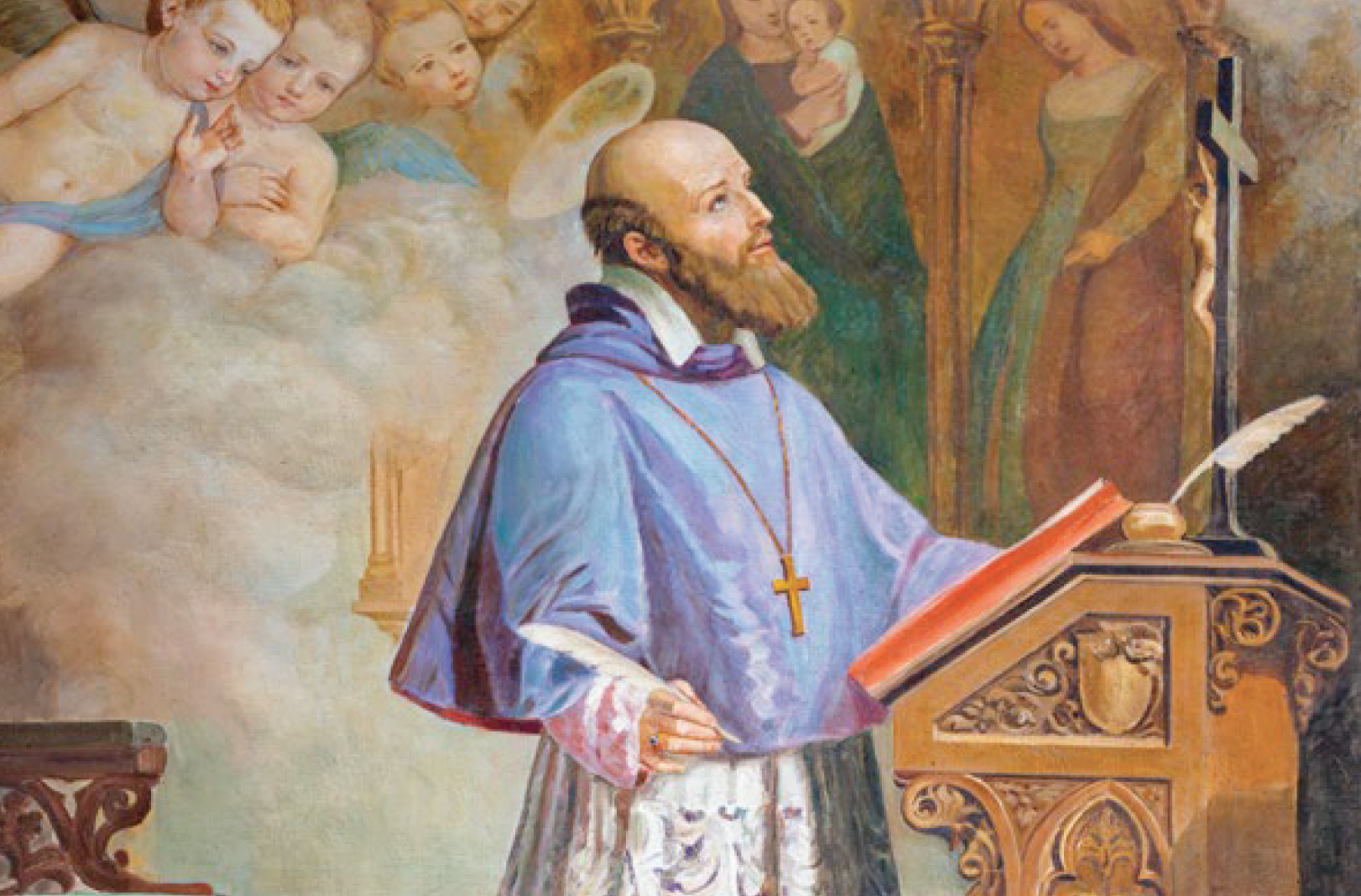From the Roman Breviary:
| Francíscus in óppido Salésio, unde famíliæ cognómen, piis et nobílibus paréntibus natus et liberálibus disciplínis erudítus, philosophíæ ac theologíæ Parísiis óperam dedit, et, láuream in utróque iure Patávii obtínuit. Sacerdótio initiátus et Genevénsis ecclésiæ præpositúram adéptus, eius múneris partes tam bene explévit, ut eum Granérius epíscopus vindicándis ab hǽresi Calviniána Chaballicénsibus divíni verbi præcónem destináverit. Quam expeditiónem álacri ánimo suscípiens, tot difficultátibus ac perículis, Dei ope, superátis, septuagínta duo míllia hæreticórum ad cathólicam fidem reduxísse dícitur. Mórtuo Granério, epíscopus consecrátus, novum órdinem sanctimoniálium instítuit, a Visitatióne beátæ Vírginis nuncupátum. Suis scriptis cælésti doctrína refértis Ecclésiam illustrávit. Lugdúni, gravi morbo corréptus, migrávit in cælum, anno millésimo sexcentésimo vigésimo secúndo, et a summo Pontífice Pio nono, ex sacrórum Rítuum Congregatiónis consúlto, universális Ecclésiæ Doctor fuit declarátus. | Francis was born of devout and noble parents in the town of Sales, from which his family took its name. He was given a liberal education, devoted himself to the study of philosophy and theology at Paris and gained the degree of Doctor in civil and canon law at Padua. When he had been ordained priest and made provost of the church of Geneva, he carried out the duties of his office so well that Bishop de Granier sent him to preach the word of God in Chablais in order to win the inhabitants away from the heresy of Calvin. He undertook this mission with such great zeal and overcame so many dangers with the help of God that he is said to have brought back to the Catholic faith some seventy-two thousand heretics. When de Granier died, Francis was consecrated bishop. He founded a new order of nuns, named for the Visitation of the Blessed Virgin, and enlightened the Church with writings filled with heavenly teaching. At Lyon, he was seized by a grave illness and departed to heaven in the year 1622. He was declared a Doctor of the Universal Church by Pope Pius IX. |

